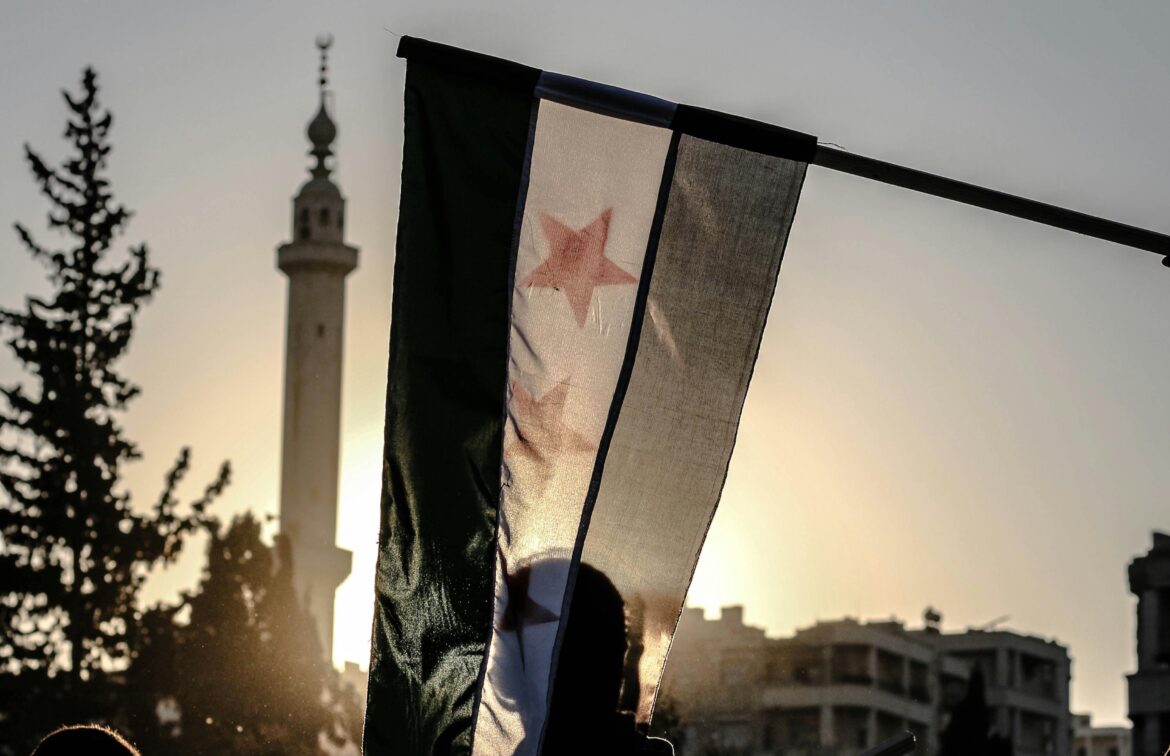“He who liberates decides!”
“Where have you been for 14 years of the civil war?”
“Syria will be an Umayyad Islamic Sunnah State.”
Since the fall of the Assad regime, these phrases have echoed across Syrian conversations, particularly on social media—the primary platform where Syrians express their political views. This wave of Islamic populism has resulted in unwavering support for the new government’s actions, regardless of its behavior. These claims are often justified because the country is facing “critical times” or that the government has little time to rule.
From the moment Hay’at Tahrir al-Sham (HTS) seized power, they ensured that government cabinet positions were filled by loyalists from Idlib, the region credited with the regime’s overthrow. Despite Syria’s many sects, political views, and ethnicities, the new leadership has deliberately excluded many Syrian opposition figures from the newly formed transitional Syrian government, maintaining a narrow and sectarian grip on power.
In late February, the new Syrian government held a two day national dialogue in Damascus, which has been criticized for its lack of authenticity, not addressing essential political questions, and excluding Syrian Democratic Forces (SDF) from the conversations. The conference came with general conclusions such as preserving liberty, justice, and equality while also condemning Israeli incursion.
A committee appointed by Alshara declared the Syrian Temporary Constitution which gave extreme unilateral power to the interim president without any checks and balances. The Constitution declaration gave the president the power to appoint a third of parliament directly, while the rest were chosen by a committee the president appoints. In addition to being the commander-in-chief of the armed forces, the president controls the appointment of the Constitutional Court judges and cabinet ministers. The constitutions contained no provision about democracy, holding elections, or legitimacy through people content.
The Druze religious leader, Sheikh Hikmat al-Hijril, has rejected the constitution declarations, saying it does not resonate the Syrian aspirations for a genuine representative democracy, demanding a new one with decentralized government and limits on executive power. Syrian Kurds have also shown discontent that the constitution maintains the “Syrian Arab Republic” name chosen by the Ba’ath Party in the 1960s, disregarding Syria’s religious, ethnic, and cultural diversity.
Tensions have very much escalated after the Coast Massacre of March 9th. Following clashes between Assad loyalists and the new government forces have resulted in many civilians from the Alawite minority to be killed. Photos and videos circulating on the internet of governmental forces documenting committing these massacres themselves. This made some Syrians view the actions of the new government as continuation of the same repression and violence committed by the Assad regime. If it were not for the unification between SDF and Damascus, Syria would have quickly descended into a new bloody civil war.
Through actions such as repairing the Umayyad mosque and the Damascus Sword at the nation’s capital, the new Syrian government has attempted to showcase itself as a continuation of the Umayyad Dynasty- a very integral part of the Syrian heritage. This has gathered mass support from the Sunni majority, which has been historically excluded from ruling for power for the past 50 years. However, the sectarian rhetoric within people in office, such as the recent speech by the Syrian foreign minister at the Brussels XI conference, calling Assad government “a minority ruled,” raised concerns about deepening divisions and alienating non-Sunni communities.
People who dare criticize the new regime are immediately attacked and are labeled as Assad loyalists attempting to stage a counter revolution. Many veteran Syrian opposition figures and notable journalists like Kamal Alabwani, Samir Matini, and Nedal Maalouf, who publicly showed discontent with the new government actions, have been subjected to constant harassment messages and death threat phone calls.
Meanwhile, the self appointed interim Syrian president, Ahmad Alsharaa, has carefully cultivated an image of humility and accessibility, attempting to portray himself as a unifying leader, often making public appearances in ordinary locations with minimal security.
All of these issues are in combination with international challenges, such as Iran and Israel routinely interfering with Syria’s domestic affairs, as well as pressure from Turkey, which previously had strong connections with HTS. Many fear the fragmentation of the Syrian state, with each region claiming independence and forming an autonomous state based on the country’s many ethno-religious lines. While many others are calling to lift Western sanctions to reintegrate Syria into the global economy.
One hundred days after Assad’s fall, the new government has failed to improve the daily lives of ordinary Syrians. Some might argue that the situation has gotten worsened, with prolonged power outages, a high crime rate, currency volatility, and mass government layoffs leading to high unemployment to alarming rates.
If the new Syrian government does not change its trajectory of consolidating power in its hands, it risks political instability that may divide Syrians again between supporters and opposition. This conflict could quickly escalate into a sectarian civil war, disrupting any chance of Syria’s recovery and reconstruction. To prevent this, an inclusive transitional government must be created, representing various sects, ethnicities, and political views to ensure stability, national reconciliation, and a decentralized political system that prevents authoritarian rule.
This piece solely expresses the opinion of the author and not necessarily the magazine as a whole. SpeakFreely is committed to facilitating a broad dialogue for liberty, representing a variety of opinions. Support freedom and independent journalism by donating today.
